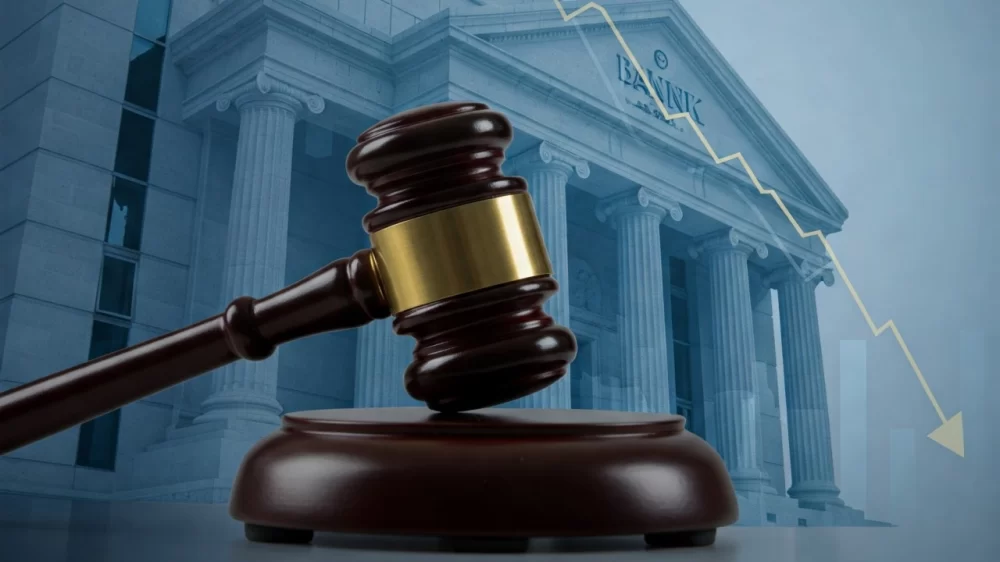
- Rights-of-Co-Creditors-in-Insolvency-Proceedings
- Legal-Framework-Governing-Co-Creditors
- Challenges-Faced-by-Co-Creditors
- Practical-Strategies-for-Co-Creditors
- Real-World-Case-Study-on-Co-Creditor-Rights
- Professional-Support-and-Resources
1. Understanding the Rights of Co-Creditors in Insolvency Proceedings
When a company or individual enters insolvency proceedings, multiple creditors often hold claims against the debtor's assets. These creditors, known as co-creditors, share a complex relationship defined by their legal rights and obligations. Understanding the rights of co-creditors in insolvency proceedings is crucial for effective debt recovery and protecting one’s financial interests.
Co-creditors possess several key rights, including the ability to participate in insolvency meetings, vote on restructuring plans, and file proofs of claim. However, their rights are not absolute and often depend on the type of claim held—secured, unsecured, or preferential. These distinctions affect the order and proportion of recovery from the debtor’s estate.
Additionally, co-creditors must navigate the procedural rules set forth by insolvency law, which govern how claims are recognized, disputed, or settled. This legal framework aims to balance fair treatment among creditors while maximizing the value of the debtor’s remaining assets.
1.1 The Role of Co-Creditors in Collective Debt Resolution
Insolvency proceedings are inherently collective processes where all creditors’ interests are pooled and addressed together. Co-creditors must often cooperate or compete depending on their priorities and claims. This dynamic requires them to understand their rights fully to negotiate settlements or challenge claims effectively.
Failure to act decisively can result in diminished recoveries or loss of legal standing in the proceedings. Hence, awareness and proactive engagement are vital for co-creditors to protect their financial interests.
2. Legal Framework Governing Co-Creditors’ Rights
The rights of co-creditors in insolvency proceedings are shaped by national insolvency laws, which provide detailed rules on claim submission, creditor meetings, voting rights, and distribution of assets. While the specifics vary by jurisdiction, some general principles are widely accepted:
2.1 Classification and Priority of Claims
One fundamental aspect is how claims are classified—secured creditors generally have priority over unsecured ones, and certain preferential claims (such as employee wages or tax obligations) may be prioritized above others. Co-creditors must identify their classification clearly to understand their standing and expected recoveries.
2.2 Coordination Among Co-Creditors
Many insolvency systems encourage or require creditor committees or representatives to act on behalf of all co-creditors, streamlining communication and decision-making. This coordination can enhance the creditors' collective bargaining power and help avoid fragmented disputes.
2.3 Dispute Resolution Mechanisms
Disagreements among co-creditors—such as claim validity or asset valuation disputes—are common. Insolvency laws provide mechanisms like mediation, arbitration, or court hearings to resolve these conflicts, ensuring fair treatment and transparency.
3. Challenges Faced by Co-Creditors During Insolvency
Despite legal protections, co-creditors often encounter significant challenges in insolvency proceedings. These difficulties can impact their ability to recover debts effectively:
3.1 Unequal Information Access
Not all co-creditors have equal access to detailed information about the debtor’s financial status or insolvency process, which may impair their decision-making and negotiation power.
3.2 Conflicting Interests Among Co-Creditors
Co-creditors may have diverging priorities—some seek quick liquidation, while others prefer restructuring plans. Such conflicts can delay proceedings and reduce overall recoveries.
3.3 Complex Legal and Procedural Barriers
The intricate rules governing insolvency require specialized knowledge. Smaller creditors or those unfamiliar with insolvency law may struggle to assert their rights effectively.
4. Practical Strategies for Co-Creditors to Protect Their Interests
To overcome challenges and maximize recoveries, co-creditors should adopt practical strategies tailored to insolvency proceedings:
4.1 Early and Active Participation
Engaging promptly in insolvency meetings and creditor committees ensures co-creditors stay informed and can influence key decisions.
4.2 Collaboration and Coalition Building
Forming alliances with other co-creditors can strengthen negotiating positions, especially in voting on restructuring plans or asset sales.
4.3 Seeking Expert Legal Advice
Professional legal counsel specializing in insolvency law can provide invaluable guidance on claim classification, procedural rights, and dispute resolution strategies.
5. Real-World Case Study on Co-Creditor Rights
Consider the insolvency case of a mid-sized manufacturing firm where multiple suppliers and financial institutions were co-creditors. Early in the proceedings, these creditors formed a committee that actively participated in the insolvency plan discussions. By coordinating their efforts and negotiating as a bloc, they secured preferential terms that improved their recovery rates significantly.
In contrast, a group of smaller, unsecured creditors who acted independently failed to assert their claims properly and received minimal payouts. This case underscores the importance of understanding and exercising the rights of co-creditors effectively.
6. Professional Support and Resources for Co-Creditors
For creditors navigating the complex landscape of insolvency, accessing professional support can make a critical difference. At ESPLawyers, we specialize in assisting co-creditors by offering tailored advice, claim management services, and strategic representation in insolvency proceedings. Our expertise ensures that creditors understand their rights thoroughly and act decisively to protect their interests.
Whether you are a secured lender or an unsecured supplier, ESPLawyers provides comprehensive support designed to help you maximize your recovery and navigate legal complexities with confidence.








